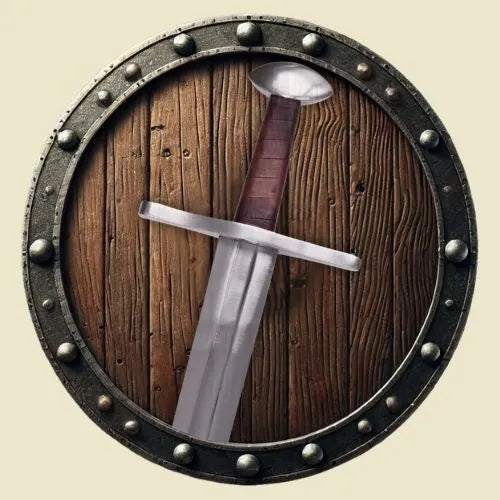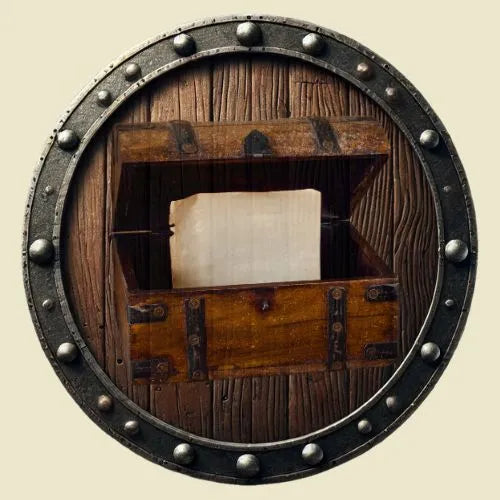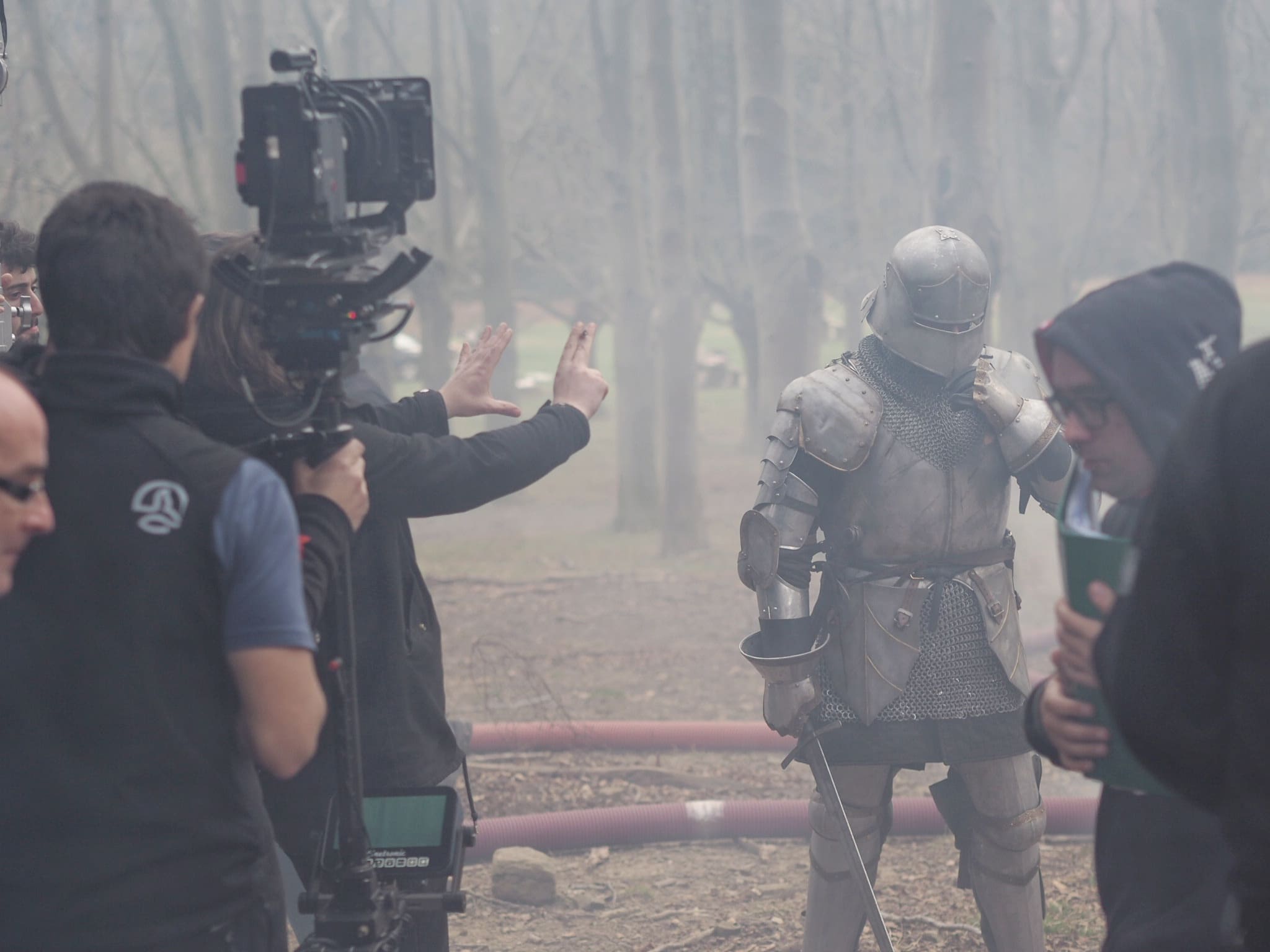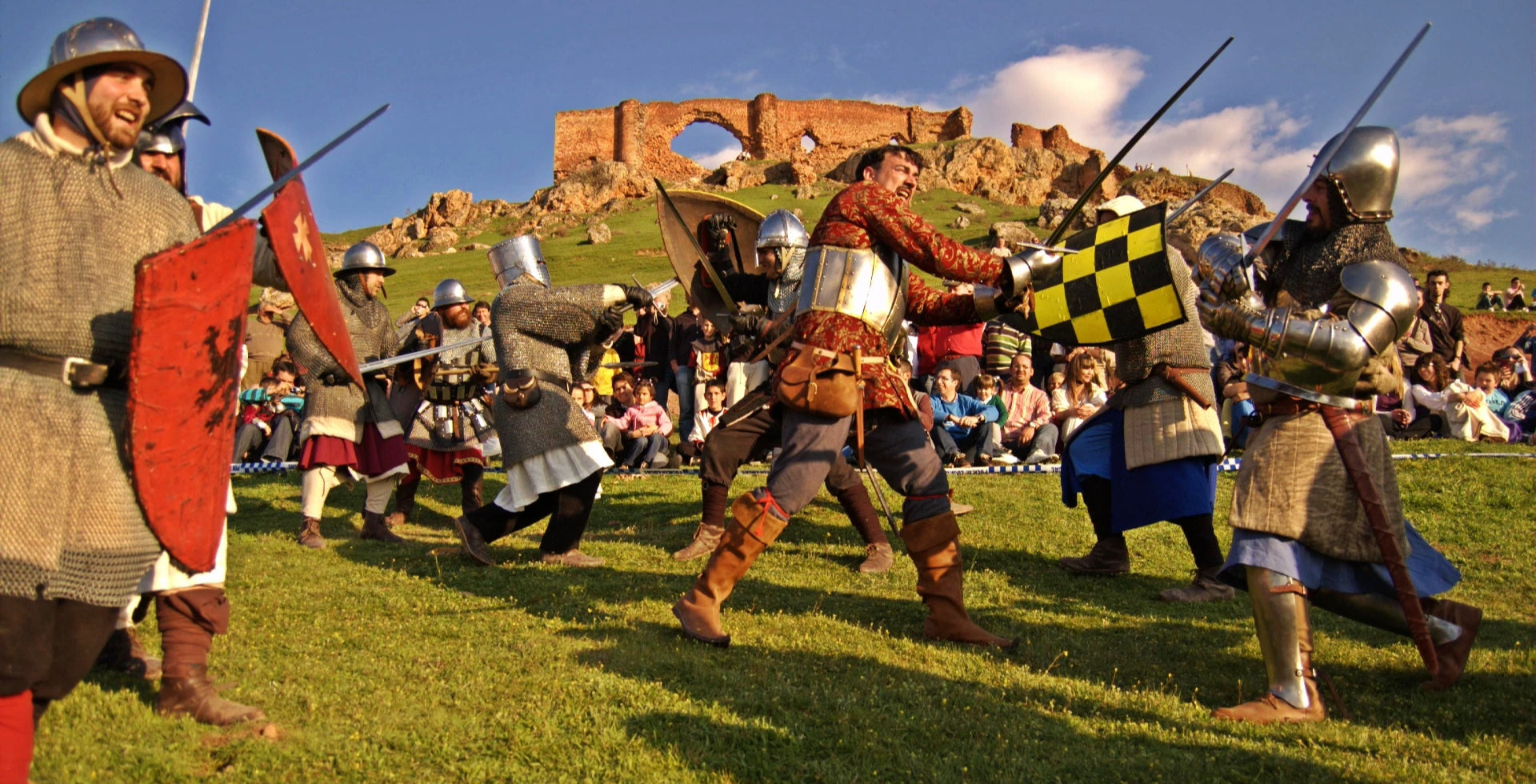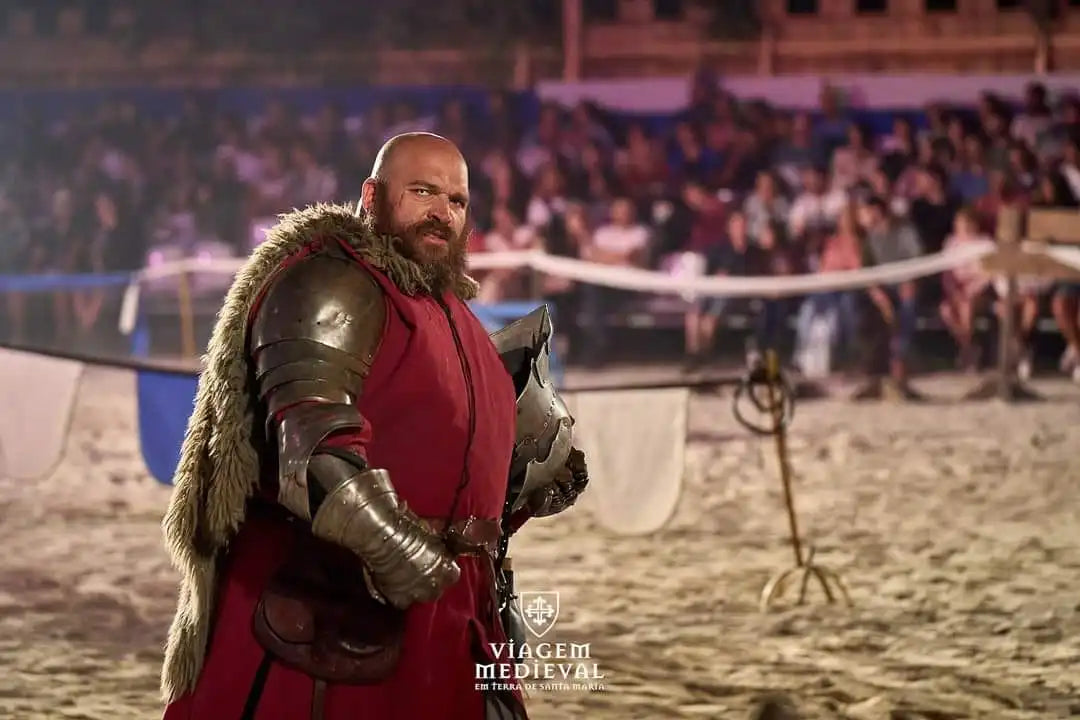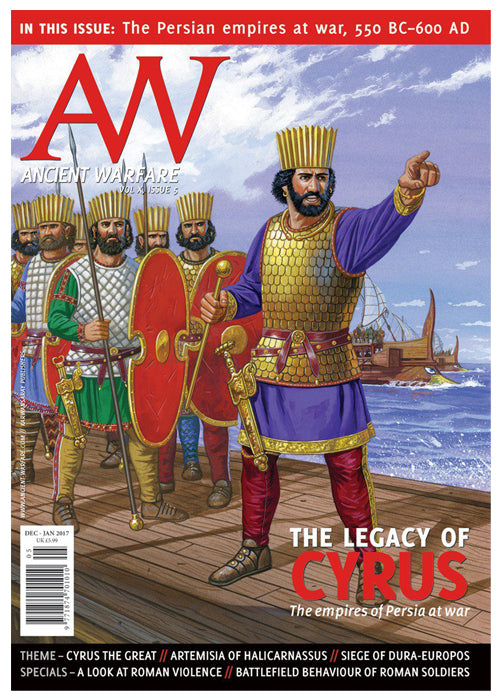Choose options
Discover Ancient Warfare Magazine Vol. X.5 - The Legacy of Cyrus
Ancient Warfare Magazine Vol. X.5 - The Legacy of Cyrus
The Persian empires at war
Topic: Cristian Violatti, the Persian Empires at War - Historical Introduction
Medes, Persians, or Achaemenids? Ancient sources rarely bothered to differentiate between them. Their tribes united and became kingdoms, and their kingdoms became empires. Some of the most decisive chapters of ancient warfare were written when their constantly shifting borders brought them face to face with the great Western powers.
Topic: Daan Nijssen, the conquest of Babylon by Cyrus - how history became myth
The conquest of Babylon by Cyrus is relatively well documented thanks to the Nabonidus Chronicle, the Cyrus Cylinder, and later Greek sources such as Herodotus and Xenophon. This event seems to have left traces in later Persian oral tradition, as a similar story about Cyrus's conquest of Babylon can be found in the Shahnameh, the national epic of Iran.
Topic: Sidney E. Dean, Cyrus and the Conquest of Media - The Beginning of Greatness
Legend has it that the Median king Astyages dreamed that his daughter's son would invade his kingdom. To prevent this, he married his daughter, Mandane, to a secluded prince on the edge of his kingdom. But legends teach that fate cannot be fooled. The couple had a son named Cyrus, who would indeed dethrone his grandfather and forge an empire greater than all that had come before.
Subject: Murray Dahm, My Men Have Turned to Women! - Artemisia of Halicarnassus
In his account of Xerxes' invasion of Greece, Herodotus goes to great lengths to portray Artemisia, the tyrant of Halicarnassus, before, during, and after the Battle of Salamis. This account, and Artemisia herself, are notable for a variety of reasons, but the idea of a capable female commander had a major impact on the ancient world.
Topic: Steve Christian-Noonan, A Look at Aeschylus's Persians - Persian Sorrow, Athenian Triumph
The Persians is a Greek tragic play written by Aeschylus and is also the only extant play, apart from the comedies, whose subject is taken not from legend, but from the recent history of Athens, i.e. the Battle of Salamis (480 BC). It provides the reader with the earliest account of the battle witnessed by the playwright, who may also have been present at the Battle of Plataea (479 BC).
Subject: Robert Holmes, The Persian Scythe Chariot - A Reaping Whirlwind
The Persians had a long association with the war chariot, beginning in the days of their Aryan ancestors. However, despite this long association, the Persians never seem to have made as extensive use of the war chariot as some of their neighbors. However, they did develop the most recognizable and impressive war chariot of the ancient world.
Subject: Arnold Blumberg, The Army of the Persian Empire, 490-330 BC
Achaemenid Persia was the greatest power of the classical world, stretching from India to Egypt and throughout Asia Minor. Their almost invincible armies were composed of a mix of infantry, archers, and cavalry. The notion that hoplite warfare was superior, as demonstrated by the Greek victory at Marathon, is questioned, since prior to that contest, the Persian armies had won battle after battle against the hoplites during the Ionian Revolt of 499–493 BC.
Topic: konstantin nossov, europos fortress (dura-europos) - desert pompeii
Dura-Europos—a Hellenistic, later Parthian, and Roman city—was located on the Euphrates, about 250 kilometers from Palmyra. Destroyed by the Sassanids in the mid-3rd century AD, Dura-Europos never revived and has been called the Pompeii of the Syrian Desert (Rostovtzeff). The dry climate and sand kept numerous rare artifacts well preserved: the siege ramp, a mine with remains of warriors, weapons, wooden shields, and arrows for throwing machines. What will remain of this unique monument after the current war in Syria?
Subject: Alexander Stover, ancestors of a formidable archery tradition
Whether as heavily armed cataphracts or as footmen, the armies of the Sassanid Empire used archery to devastating effect in wars against enemies such as the Romans and the Huns. The methods of individual Persian archers of late antiquity provide a fascinating insight into a martial art and sport that enjoyed great prestige in their society. Long after the Sassanid Empire succumbed to the Muslim conquests, they were remembered with awe and respect.
Story: Josho Brouwers, Alexander the Great in Surprise Attacks - Stealing Victory
When, on the eve of the Battle of Gaugamela in 331 BC, some of Alexander's companions saw the numerous fires lit by the Persian hosts on the plain and were afraid to face this vast army in broad daylight, they led the king to attack the Persian camp under cover of a dark council. But Alexander refused, saying, "I will not steal the victory."
Special: Joseph Hall, Definition (and Denial) of Noxious Force
Until recently, academia has denied the ubiquity of violence in antiquity. However, even now that attitudes are changing, the fact that violence has been ignored as a topic for so long means that it is still a vastly understudied field of research. Few people would dispute the claim that the Roman Empire was created and maintained largely through the use of force, so why has the study of such force—in all its contexts—received so little attention until now?
The debate: robbert bleij, Roman heavy infantry on the battlefield - lines and boundaries
For as long as I can remember, I've been fascinated by human behavior under pressure, not only in my personal life but also as a student of history. My thesis, "Lines and Limits," deals with the psychological and physical limits and possibilities of soldiers under stress during the late Republic and early Principality.
Hollywood Romans: David L. Reinke, A Vivid and Dignified Epic - The 300 Spartans
Considering Thermopylae's legendary aspects, it's surprising that Hollywood has ignored this fundamental commitment. With the exception of a few documentaries, there are only two feature films to speak of: 300 Spartans (1961) and, much more recently, Zack Snyder's 300 (2006). A rather lively and dignified epic, this is how film critic Leslie Halliwell summed up 300 Spartans with a laconic brevity worthy of the Spartans.
At Tienda Medieval, we have thousands of medieval and other period products. Discover them!
Free shipping
The entire Iberian Peninsula from €60 (*Does not include islands) and shipping worldwide. Check our rates.
Customer service
We are available Monday through Friday to answer your questions.
Secure Payment
We comply with all regulations to ensure Secure Payment
Contact us
Need to contact us? Just email us at info@espadasymas.com

